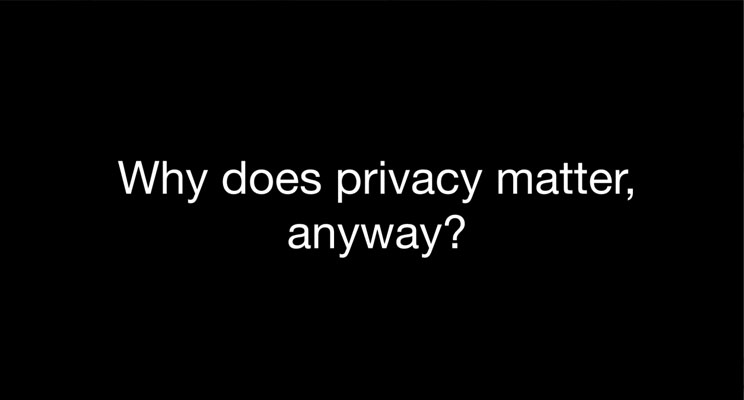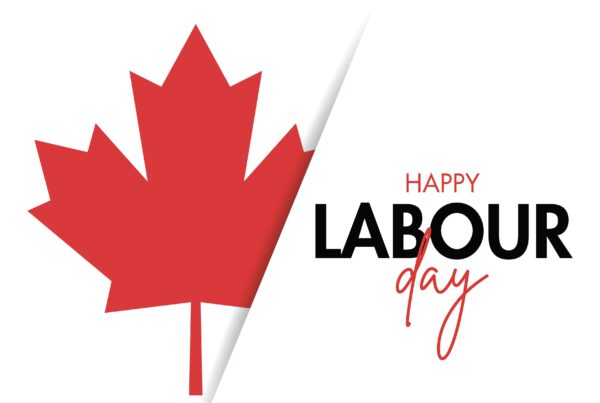I asserted a few weeks ago, in my last article, that privacy is everybody’s concern. Everyone seems to agree: Try finding an organization these days – any kind of organization – that doesn’t have a privacy policy.
But why exactly does privacy matter—to me, to you, to all of us? After all, we live in an era in which many of us willingly choose to lay our private lives out on social media for all to see.
There are many ways of making the case for privacy: from a political and historical standpoint, or from a legal standpoint, for instance. I would like today to offer a perspective grounded in the principle of self-determination: the ability to write our respective life narratives in accordance with our own beliefs and values.
I must first define the scope of my argument. My interest, in this article, is on the role of privacy in the domain of personal preferences – the aspects of our lives that, in liberal democracies, are kept outside of the purview of the state (walking outside in my pajamas, for instance). The comments that follow, therefore, pertain to choices and behaviours that, while perhaps debatable from the standpoints of morality and appropriateness, are entirely legal.
In The Morality of Law, first published in 1964, Lon L. Fuller drew a useful distinction between the realm of strict obligations, at one end of the spectrum, and the realm of personal aspirations, at the other:
“[I]magine a kind of scale or yardstick which begins at the bottom with the most obvious demands of social living and extends upward to the highest reaches of human aspiration. Somewhere along this scale is an invisible pointer that marks the dividing line where the pressure of duty leaves off and the challenge of excellence begins.” (pp. 9-10)
The distinction is important to my argument because we live at a time when completely legal choices that offend the moral preferences of any number of individuals or social groups can expose us to “grave social and personal consequences, including […] subjection to social stigma and ostracism from the community, as well as other social, psychological and economic harms.”
Those consequences were described in 1986 by the Chief Justice of Canada in the context of someone who is charged by the state with a criminal offence, but the consequences of being targeted online or in the physical world for not living up to some group or another’s version of morality have much in common with what Chief Justice Dickson was describing. (R. v. Oakes, 1986 CanLII 46 (SCC), [1986] 1 SCR 103 [29]).
The risk of such consequences – real or apprehended – effectively curtails our ability to experiment with various choices and lifestyles which, while within the sphere of acceptable personal choices in a free and democratic society, can become subject to broad public scrutiny in an age when every move we make and every word we utter is now susceptible to be observed, tracked, recorded and shared. Things that were unlikely to rouse the interest of your community paper in decades past may, in our day and age, become known to your employer, your car insurer and the online populace more broadly via a field of visibility that keeps extending to more and more aspects of our lives.
Let’s take an example. It may be the case that I aspire, on ethical grounds, to holding to a strictly vegetarian diet. As a result, I may feel, after finishing a large hamburger with cheese and bacon at my local restaurant, that I have fallen short of my own standards. The shame I feel in that moment – my internal struggle – forms an important part of my journey towards becoming the person that I aspire to be. It is part of what defines me as a human being endowed with agency.
If, on the other hand, I am being observed through the window by a group of hardened vegans armed with cell phones and that I fear being publicly harassed on campus for my culinary choices, I may in the moment pick the kale salad with grilled tofu. The outcome may be desirable, but I acted under duress, so my freedom was curtailed, and I lost an opportunity to face my own conscience and act ethically (or learn from my failure and decide to do better the next time).
[Insert your own example here]
The ever-expanding field of visibility to which we are all subjected raises the stakes on our everyday choices and preferences, which in a free society should not require recklessness or heroism in the face of dire consequences (that’s why surveillance is such an effective means of social control). This effectively curtails our agency because freedom of choice lies at the heart of what it means to be a moral agent.
It is certainly not the only aspect, as acting ethically also depends on the ability to discern what is, in fact, the right thing to do in a given situation. As a result, living in a way that is good and just is a lifelong quest that necessarily entails trial and error, ups and downs and considerable self-reflection on what it means to live a good life.
The struggle to do the right thing that we go through as fallible moral agents is an essential part of what it means to be human. By curtailing our effective options, the erosion of privacy threatens our ability to act in accordance with our values and life preferences and, in the process, our very dignity as human beings. Do this on a large enough scale and the kind of society we live in changes fundamentally.
You can read this article’s companion piece here.



